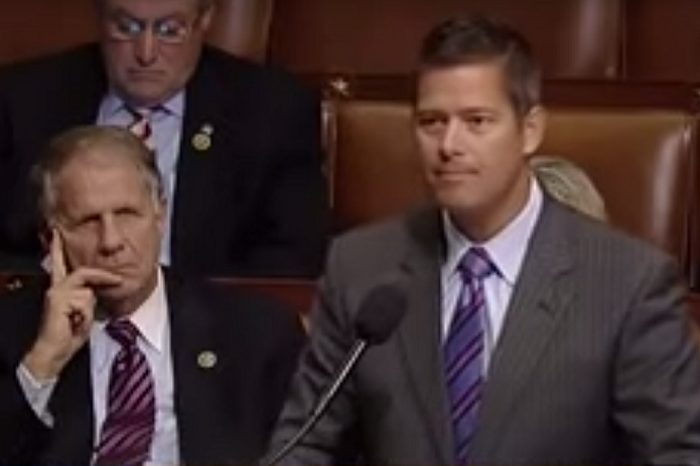U.S. House Passes Yet Another Anti-Choice Bill
The misleadingly-named "Women's Public Health and Safety Act" would allow states to kick health-care providers out of their Medicaid programs for performing abortions, or being connected in almost any way to abortion services.

See more of our coverage on the effects of the misleading Center for Medical Progress videos here.
While a House committee was busy grilling the president of Planned Parenthood on Tuesday, the U.S. House debated and passed an anti-choice bill for at least the fifth time this year.
In 2015 the House has already passed an unconstitutional 20-week abortion ban, measures to defund Planned Parenthood and criminalize abortion providers, and a proposal to severely restrict insurance coverage of abortion, along with several other bills that had anti-choice language slipped into them.
HR 3495, sponsored by Rep. Sean Duffy (R-WI) and misleadingly named the “Women’s Public Health and Safety Act,” would allow states to kick health-care providers out of their Medicaid programs for performing abortions, or being connected in almost any way to abortion services.
“I wonder if the people on the other side of the aisle actually read this bill on the floor today, because it is so broadly written that it would target any medical provider—doctor, hospital, clinic, you name it—that has even the most tenuous connection to the provision of a full range of women’s health-care services,” said Rep. Diana DeGette (D-CO) during debate on the bill.
HR 3495 represents an attack on funding for Planned Parenthood, which GOP legislators have aggressively targeted ever since an anti-choice front group released deceptive, discredited videos attacking the organization.
Contrary to the bill’s stated support of “women’s public health,” the nonpartisan Congressional Budget Office (CBO) estimated that hundreds of thousands of patients would face reduced health-care access if Planned Parenthood lost its federal funding. Evidence shows that other health-care providers like community health clinics could not fill the resulting coverage gap, as many Republicans suggest. Defunding would have a variety of harmful impacts on low-income women.
Attempts to defund Planned Parenthood have threatened to shut down the government at the federal level, but they are almost certain never to become law as long as President Obama is in office.
The story is more complicated at the state level. Anti-choice governors can and do find ways to cut Planned Parenthood’s funding, but they run into legal trouble whenever they try to totally eliminate the health-care provider from state Medicaid programs. Federal law prohibits discriminating against a patient’s chosen Medicaid provider for reasons unrelated to its fitness as a provider, including whether or not the provider offers safe and legal abortion services.
Anti-choice lawmakers made no secret about the idea that this bill is designed to let states defund Planned Parenthood specifically, and Duffy repeated discredited anti-choice tropes about the group’s founder, Margaret Sanger.
Rep. Diane Black (R-TN) criticized Planned Parenthood for “suing States that dare to protect taxpayer dollars by exercising their right to terminate contracts with this abortion giant.”
Rep. Gwen Moore (D-WI) took issue with that framing.
“I have heard the term ‘states’ rights’ used in ways that were not very healthy and safe for me as an African-American woman,” Moore said. “There is nothing healthy and safe about a bill that would deny women their constitutional and human rights to control their own reproduction—to get birth control, to be protected against STDs, or to have an abortion.”
